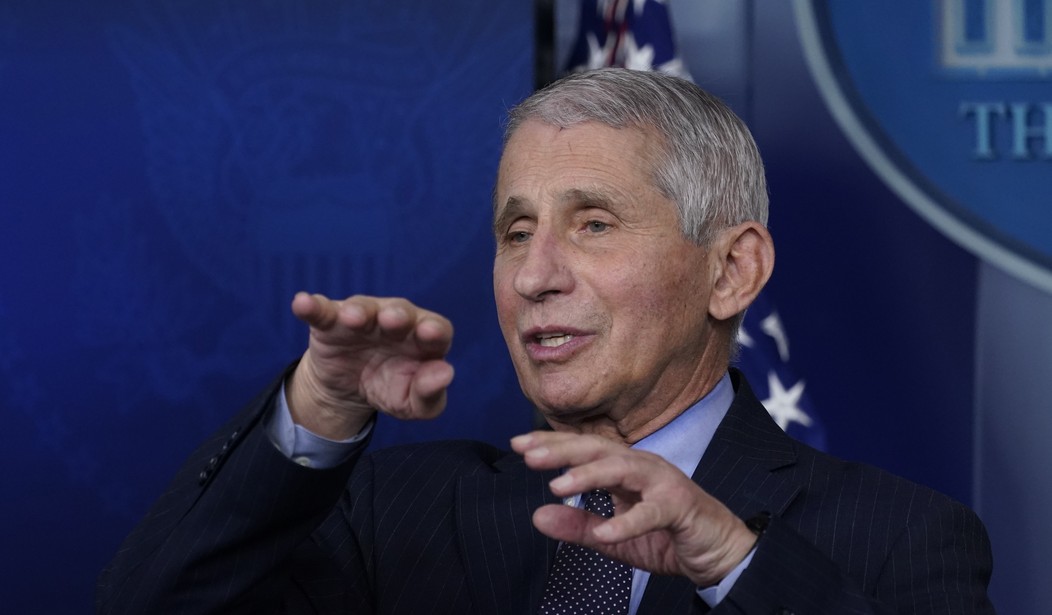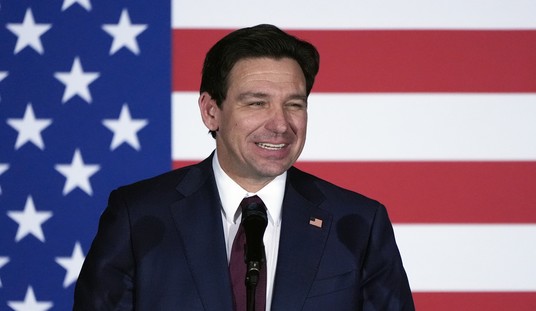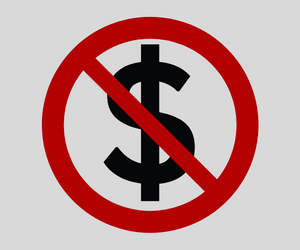On Saturday, Dr. Anthony Fauci told CNN’s Jim Acosta that if the smallpox vaccine and the polio vaccine faced the kind of “misinformation” directed at the COVID-19 vaccine, both diseases would still be a problem in the United States today. Yet a recent MIT study found that vaccine hesitancy is “highly informed, scientifically literate,” and “sophisticated,” and both the smallpox vaccine and the polio vaccine faced steep hurdles and opposition.
Fauci made his historically illiterate remark after Acosta condemned Fox News’ Tucker Carlson.
“The most watched television show on Fox News right now is outright hostile to the vaccine in this environment. Do you think we could have eradicated polio or defeated the measles if you had Fox News night after night warning people about these vaccine issues that are just bunk?” Acosta asked.
Fauci, whom PJ Media’s Stephen Green refers to as “celebrity spokesmodel,” gleefully took Acosta’s bait.
Recommended: Dr. Fauci: ‘There’s No Inconsistency’ in Banning Church and Business But Allowing Mass Protests
“Well, that is a very good point, Jim,” Fauci, the director of the National Institute of Allergy and Infectious Diseases and chief medical advisor to President Joe Biden, replied.
“If you look at the extraordinary historic success in eradicating smallpox and eliminating polio from most of the world — and we’re on the brink of eradicating polio — if we had had the pushback for vaccines the way we’re seeing on certain media, I don’t think it would have been possible at all to not only eradicate smallpox, we probably would still have smallpox and we probably would still have polio in this country if we had the kind of false information that’s being spread now. If we had that back decades ago, I would be certain that we’d still have polio in this country,” Fauci insisted.
From my interview with Dr. Fauci… he says if the US had this amount of disinformation during the battle against polio, polio would likely still be around today. Watch… pic.twitter.com/U6aX3b3F9d
— Jim Acosta (@Acosta) July 18, 2021
Fauci must not have brushed up on his vaccine history before going on with Acosta.
Both the smallpox vaccine and the polio vaccine faced loud opposition.
When widespread smallpox vaccination began in the early 1800s in England, many parents opposed the vaccine and some clergy opposed it, calling it “unchristian” because it came from an animal, according to the College of Physicians in Philadelphia. Others opposed the vaccine because they distrusted medicine in general. Even then, some vaccine opponents objected because they believed the vaccine violated their personal liberty. This objection grew louder after Britain ordered mandatory vaccination for infants up to three months old in 1853.
Toward the end of the 1800s, vaccine opponents organized in the United States. The Anti Vaccination Society of America (1879), the New England Anti Compulsory Vaccination League (1882), and the Anti-vaccination League of New York City (1885) grew to oppose vaccines. The movement waged court battles to repeal vaccination laws in many states, including California, Illinois, and Wisconsin.
Early opposition to the polio vaccine came from the scientific community.
John Kolmer tested the first polio vaccine in 1935. He tested about 10,000 children, five of whom died of polio and ten of whom got paralyzed, usually in the arm where the vaccine was injected. Many of the kids involved lived in towns where no outbreak had occurred, and Kolmer did not have a control group. He insisted that many more children would have gotten sick without the vaccine, but one of his own researchers called him a murderer.
In the same year, Maurice Brodie tested 7,500 children and adults, with 4,500 in a control group. One out of 900 subjects developed polio in the control group, while one out of 7,500 subjects developed polio after getting vaccinated, meaning the vaccine was 88 percent effective. Yet researchers claimed that one case of polio was caused by the vaccine, while two more cases emerged later.
While a breakthrough came in 1948, Jonas Salk did not create the first effective polio vaccine until 1952, and his first successful test took place on March 26, 1953.
While the polio vaccine proved extremely effective, Scientific American reported that chiropractors opposed the vaccine over a period of decades. Even as polio cases decreased significantly following the emergence of the vaccine, an article in the Journal of the National Chiropractic Association asked, “Has the Test Tube Fight Against Polio Failed?”
All this history aside, vaccine skepticism is not a uniquely right-wing phenomenon. As PJ Media’s Matt Margolis pointed out, both Kamala Harris and Joe Biden raised doubts about a COVID-19 vaccine before the 2020 election, and the pause of the Johnson & Johnson vaccine appears to have led more Americans to reconsider taking the jab.
Polio paralyzed my grandfather (and my namesake) from the waist down when he was five years old. Partly due to this personal history, I very much support vaccines. My wife’s bizarre taste complications from COVID-19 also lead me to support the recent vaccines. While I consider the vaccines safe and worth the risk, I understand some Americans’ concerns about them.
The White House’s campaign against COVID-19 “misinformation” on social media is both hypocritical (given Biden’s previous remarks) and terrifying. Partisan fact-checkers have used claims of “misinformation” to silence those who dissent from the leftist narrative on climate change, transgenderism, abortion, and other issues. In fact, during the 2020 election, Biden supporters engaged in their own misinformation to delegitimize the Hunter Biden emails.
Both Acosta and Fauci intended to smear Fox News and conservatives as anti-science, but Fauci exposed himself as woefully historically ignorant. Vaccine hesitancy traces back centuries, and if people organized to oppose smallpox vaccines and polio vaccines when those vaccines took decades — and in the case of smallpox, arguably centuries — to develop, it seems extremely reasonable that there will be some mild hesitancy about the COVID-19 vaccines, which were developed in less than a year.
Recommended: Biden: COVID ‘Misinformation’ Is ‘Killing People.’ So Why Is Fauci Still Recommending Masks?
Public health experts like Fauci have contradicted themselves throughout the pandemic, undermining their own credibility in apparent attempts to influence the public. Given this recent history, it seems rather remarkable that vaccine hesitancy is as limited as it is.










Join the conversation as a VIP Member